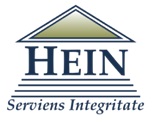Keywords
network industries, public utilities, railway transport, economic regulation, liberalisation, vertical separation
Abstract
The article is devoted to a phenomenon called vertical separation in the area of network industries. Vertical separation is understood as de-merging of infrastructure and delegating control over it to independent manager banned from operating on downstream markets which are subject to liberalisation. Arguments for and against these tendencies have been examined using the example of the European railway transport. The complete analysis presents vertical separation as a promising solution for the railway industry. One of the conditions for the success of this reform is forming of a close cooperative relationship, based on loyalty and trust, between the infrastructure manager and its clients – rail operators. Building such a relationship should be supported by the implemented regulatory policy.
Recommended Citation
Król, M. (2009). Benefits and Costs of Vertical Separation in Network Industries. The Case of Railway Transport in the European Environment. Yearbook of Antitrust and Regulatory Studies, 2(2), 170-191. Retrieved from https://press.wz.uw.edu.pl/yars/vol2/iss2/8
First Page
170
Last Page
191
Page Count
21
Publisher
University of Warsaw







